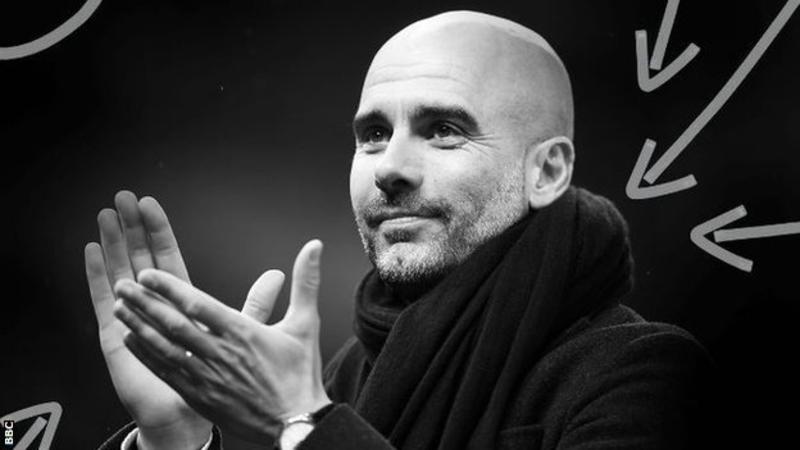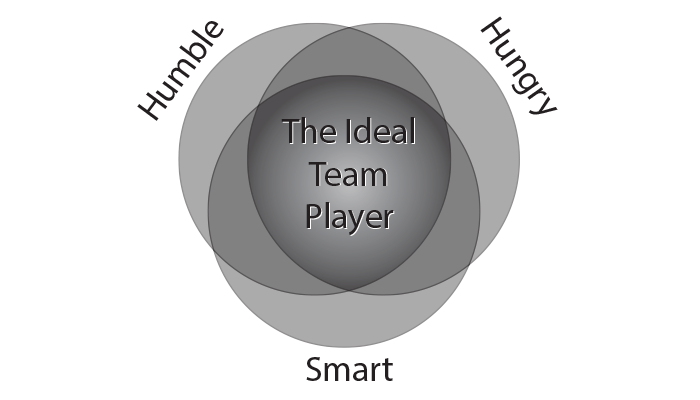
by Gary Reinecke | Apr 18, 2018 | Coach Training, Leader Development, Personal Development, Uncategorized |
Last week I introduced three virtues of a coachable person based on Patrick Lencioni’s book entitled: The Ideal Team Player. The three virtues: Hungry-Humble-Smart are also wonderful traits of a coachable person. I will address each of these in the upcoming blogs beginning with the trait of a “hungry” person.
In case you missed it, Pep Guardiola led Manchester City to the English Premiership title last weekend. To no one’s surprise, the club completed the feat with 6 games remaining in the season. This gives them the chance to accumulate the most points ever during the course of a single season – and chances are, “Pep” will see his team reach that goal.
Beyond his desire to win is a relentless thirst to learn and be a student of the game so that he can find new ways to surprise his opponents. He is regarded as THE BEST manager in the game of football (soccer) today – and perhaps of all time. *He was the third of four children born to Valenti Guardiola, a bricklayer, and Dolors Sala and raised in a working-class home with solid family principles and a clear sense of dignity. His unquenchable thirst drives him to succeed, challenge his players and feed the wild beast within.
*If you are interested in reading more about Pep Guardiola here is the link to an article highlighting his journey that created his incredible appetite and work ethic.
When identifying leaders to coach, having a hunger to learn, continually improve and achieve, is critical to a fruitful coaching relationship. Nothing is more inspiring than a person who has the desire, that drive and grit to grind it out when hard work is required. This hunger will drive the agenda for many a coaching relationship.
Consider the people you are currently developing, assess each by their willingness to word hard using a 3-point scale
- Low = lacks drive
- Medium = solid work ethic
- High = crushes it at every opportunity
Now consider people you want, or should be developing, using the same scale.
What new insights do you have?
If you would like to process this further, please e-mail office@infocusnet.org to schedule a complimentary, 25 minute coaching conversation with Gary Reinecke.

by Gary Reinecke | Jul 23, 2019 | Disciplemaking, Leader Development, Personal Development |
I’ve struggled to describe the non-negotiables of a coachable person when training leaders in the coaching process and skills.
That is, until I read Patrick Lencioni’s book entitled, The Ideal Team Player. I’ve blogged about the three qualities (Hungry-Humble-Smart) as it pertains to a coachable person, in the past – CLICK HERE to review previous blogs. These are so important, easy to remember and helpful to determine if a person is a good fit.
What I did not know is that you can actually assess a person for these three qualities with a statistically reliable and valid tool – CLICK HERE to learn more.
The Harrison Assessment is capable of doing just that. This could be a very helpful exercise to assess prospective coaching clients, potential team members or as a developmental tool for people already on your team. Honestly, to have people see where they assess on the three qualities could be a humbling exercise, as well as a great way to help leaders surface blind spots. I’m always looking for new ways to come alongside leaders to help them go further faster.
If you would like to chat about this or other Harrison assessments, please CLICK HERE to schedule an appointment with Gary and discuss how The Harrison Assessment might further your mission to pre-qualify future staff hires & church planters, assess existing staff and develop your leaders.

by Gary Reinecke | Apr 11, 2018 | Uncategorized |
Cristiano Ronaldo is a lot of things.
This week Real Madrid played Juventes in the second leg of a home and away series. The caption under the photo reads: Cristiano Ronaldo shows what he is made of after scoring the penalty that saved Real Madrid from Champions League humiliation against Juventus. The man is a beast on the football (soccer) pitch!
Ronaldo is a champion, he loves the BIG stage, he is THE MAN when everything is on the line. In addition, he is seldom criticized for his humility. I’ve found that humility is one of the key qualities of a coachable person in the arenas you and I minister.
What makes a person coachable? I’ve been asked this question and have thought about a concise response. Most of the time, I vett potential leaders that I am considering to coach using my intuition. Here are some of the issues I consider:
- Like-minded vision
- Like-minded values
- Like-minded expectations for coaching
- Alignment in the “x” factor(s)
- And the all important – chemistry!
In general, I believe a coachable person is one who is willing to work hard. A coachable person is teachable, that is, they desire to learn and grow. A coachable person possesses a high degree of self-awareness.
Do you coach leaders within local churches?
Do you coach leaders in church planting networks?
Do you coach leaders in mission societies?
I’ve coached leaders in the venues mentioned above at about every imaginable position, and for years I’ve had the good fortune of attracting people who fit the description of a coachable person above. When I hear leaders struggle with people they lead, supervise and develop; I’ve discovered that the three virtues Patrick Lencioni identifies in The Ideal Team Player provides a great framework to vett strong team members, employees and people you want to coach. Let me suggest the three virtues, along with a key question that I use to help vett potential leaders to coach.
Three virtues of a coachable person:
- Hungry – Is this person a hard worker?
- Humble – Is this person eager to learn?
- Smart – Is this person emotionally self-aware?
Of course, if you are leading a team and you have inherited the members of the team, you must work with the personnel you have. As a church planter, you may not have the luxury to recruit the ideal team player; but this gives you an idea of the qualities to look for. Likewise, when people approach you to coach them, these virtues along with the clarifying question can guide your decision-making process.
The three qualities were identified in The Ideal Team Player by Patrick Lencioni; and provide a helpful description of who would make a good candidate for you to coach.


